The Library of Congress has cataloged the hardcover edition as follows: Rothkopf, David J. (David Jochanan), 1955
Superclass: the global power elite and the world they are making / David Rothkopf.1st ed.
p. cm.
Includes bibliographical references and index.
ISBN-13: 978-0-374-27210-4 (hardcover: alk. paper)
ISBN-10: 0-374-27210-7 (hardcover: alk. paper)
1. Elite (Social sciences) 2. Power (Social sciences) I. Title.
but are love and a good sense of humor.
Or at least thats what they keep telling me.
C ONTENTS
INTRODUCTION
T HE P OWER E LITE ON THE P ROMENADE
CHAPTER 1
E ACH O NE I S O NE IN A M ILLION: M EET THE S UPERCLASS
What Does Disproportionate Power Look
Like?
CHAPTER 2
C ETERIS N ON P ARIBUS: I NEQUALITY, B ACKLASH, AND THE N EW O RDER
Not Just
a Chilean Paradox Ceteris Non
Paribus: Inequality of Power, Inequality of Wealth War of the Rich and
the Superrich? Premium Pay
in the Executive Suite
CHAPTER 3
L ESSONS OF H ISTORY: T HE R ISE AND F ALL OF E LITES
The Power of
Money The Power
of Networks From the Wanaxes to the Robber Barons: The Rise and
Fall of Elites
CHAPTER 4
T HE M ULTINATIONAL M OMENT: W HEN F INANCE AND B USINESS B ECAME THE C ENTER OF I T A LL
The Interlinked Corporate
Elite Energy Elites: A Unique Public
Private Network Global
Industry, Global Leadership
CHAPTER 5
G LOBALISTS VS. N ATIONALISTS: P OLITICAL F AULT L INE FOR A N EW C ENTURY
The Rules Change
But the Game Stays the Same: Political Elites Worldwide Behind the
Scenes: The Globalization of the Smoke-Filled Back Room Tangled
Webs and Tottering Institutions An Informal Affair: The Sovereignty vs.
Democracy Trade-Off
CHAPTER 6
T HE A GE OF A SYMMETRY: D ECLINE OF THE T ITANS AND THE R ISE OF S HADOW W ARRIORS
Consolidation and
Concentration of Military Power
The Privatization of the Military: A
Two-Way Street Permanent Wars Bottom Line: A Country and an
Alliance Beyond All Others
CHAPTER 7
T HE INFORMATION S UPERCLASS: T HE P OWER OF I DEAS
An Ascendant Voice of Change in
the Middle East New Media Monkey-Gland Injections: A Quick Shot
of Sizzle
CHAPTER 8
H OW TO B ECOME A M EMBER OF THE S UPERCLASS: M YTH, R EALITY, AND THE P SYCHOPATHOLOGY OF S UCCESS
A Very Short History of Things That Didnt Really HappenAnd Their Very
Real Consequences Can It Be
Considered an Academic Elite Society If George W. Bush Was a Member?
Asian and Latin American
Wannabes or Harbingers of the Supermeetings of Tomorrow? How to
Become a Member of the Superclass
CHAPTER 9
T HE F UTURE OF THE S UPERCLASS A ND W HAT I T M AY M EAN FOR THE R EST OF U S
Disproportionate Concentration
of Power
The Emerging Superclass: A Coming
Culture Shock? Is a
Crisis Inevitable?
P REFACE TO THE P APERBACK E DITION
T URNING P OINT FOR THE S UPERCLASS?
 None among the worlds superclassthe most powerful of the worlds most powerful peoplehave flown higher than the financial elites. No group globalized more rapidly or played a bigger role in fostering globalization. No group more effectively shrugged off the bounds of national regulatory regimes and flourished in the uncharted, unchartable territory above and beyond borders. They helped create great fortunes among themselves and the businesses they served. Their trading desks ran a real-time referendum on national policies that impacted the fate of political leaders as once only electorates or armies could do. The elite of this elite, heads of great financial institutions and funds, billionaire traders and commodity market kingpins, truly strode like titans through the first years of the global era. They have been symbols, examples, empowerers, and beneficiaries of a new system that appeared to concentrate more economic power in the hands of relatively fewer people and that, in the eyes of many, exacerbated the great chasm that separates the haves of this world from the have-nots.
None among the worlds superclassthe most powerful of the worlds most powerful peoplehave flown higher than the financial elites. No group globalized more rapidly or played a bigger role in fostering globalization. No group more effectively shrugged off the bounds of national regulatory regimes and flourished in the uncharted, unchartable territory above and beyond borders. They helped create great fortunes among themselves and the businesses they served. Their trading desks ran a real-time referendum on national policies that impacted the fate of political leaders as once only electorates or armies could do. The elite of this elite, heads of great financial institutions and funds, billionaire traders and commodity market kingpins, truly strode like titans through the first years of the global era. They have been symbols, examples, empowerers, and beneficiaries of a new system that appeared to concentrate more economic power in the hands of relatively fewer people and that, in the eyes of many, exacerbated the great chasm that separates the haves of this world from the have-nots.
And in the year following the hardcover publication of Superclass in the United States, no group was more in the headlines as the financial elites were buffeted by what former U.S. Federal Reserve chairman Alan Greenspan called a once-in-a-century financial meltdown. As once powerful financial institutions such as Lehman Brothers, Merrill Lynch,Bear Stearns, AIG, and U.S. mortgage lenders Fannie Mae and Freddie Mac were wiped away, rendered unrecognizable or brought under the wing of the U.S. government, much was revealed not only about the deep flaws in the global financial system but about this important segment of the superclassand by extension about the nature, power, and importance of the superclass as a whole.
When Bear Stearns went into its tailspin in March 2008, it was made clear not only that todays global markets operated far beyond the reach and understanding of national regulators but also that those same regulators were no longer in the position that they once were to manage crises on their own. New York Federal Reserve Bank president Timothy Geithner and his colleagues grappled with the crisis by convening a select group of the financial superclass in the conference rooms at the Fed, or in conference calls that included Treasury Secretary Hank Paulson or Greenspans successor, Ben Bernanke, because only with the voluntary cooperation of the private sectors most important leaders could the financial bloodletting be stopped. When, at the time of that crisis, J.P. Morgan CEO Jamie Dimon stepped in to lead the acquisition of the remaining assets of Bear Stearns and facilitate a soft landing for the dying firm, it echoed an intervention more than a century earlier when J. P. Morgan himself procured over $65 million in gold for the U.S. federal government to help stem a run on financial markets. Thus, not only was the ascendant and central role of the financial superclass in todays global markets revealed but so, too, was it underscored that there have always been superelites with a special role to play, the evolution to todays group primarily reflected in its global nature. If a century ago there were only a few hundred people in the world who met this books definition for inclusion in the superclassthe ability to influence millions across borders on a regular basistoday there are thousands, and a greater percentage than ever before owe their power to their work in the private sector. More, too, had earned their positions, compared to the elites of the past, who often inherited them. Further, the role of military leaders among international elites receded as the cost of modern warfare became too high.

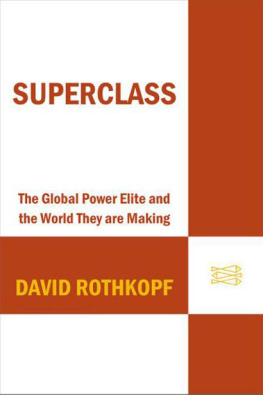
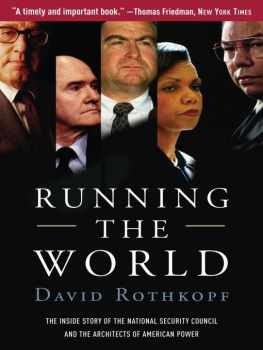
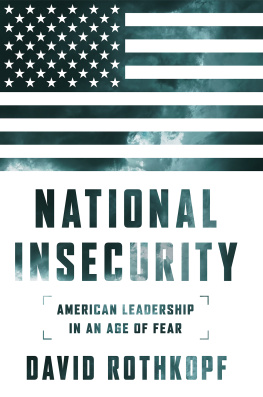

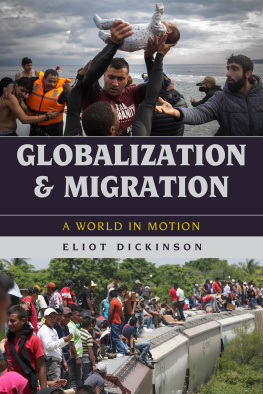
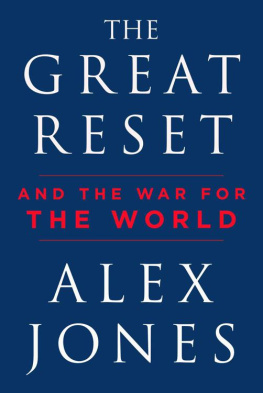
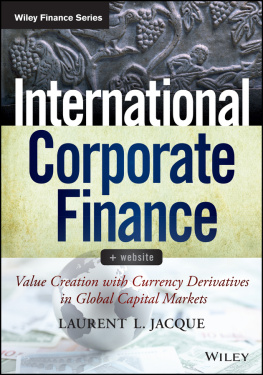
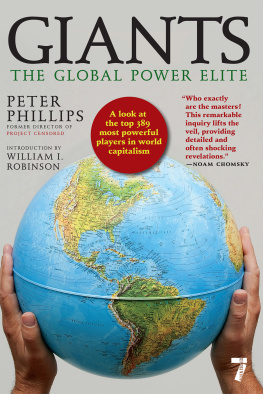
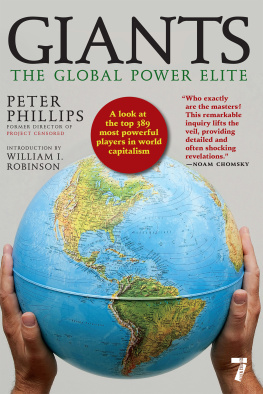
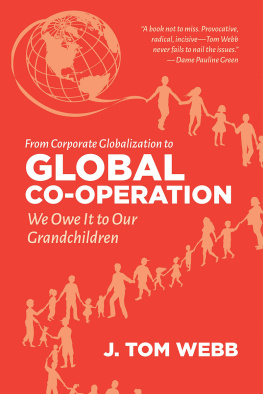
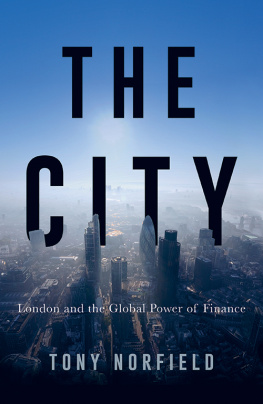


 None among the worlds superclassthe most powerful of the worlds most powerful peoplehave flown higher than the financial elites. No group globalized more rapidly or played a bigger role in fostering globalization. No group more effectively shrugged off the bounds of national regulatory regimes and flourished in the uncharted, unchartable territory above and beyond borders. They helped create great fortunes among themselves and the businesses they served. Their trading desks ran a real-time referendum on national policies that impacted the fate of political leaders as once only electorates or armies could do. The elite of this elite, heads of great financial institutions and funds, billionaire traders and commodity market kingpins, truly strode like titans through the first years of the global era. They have been symbols, examples, empowerers, and beneficiaries of a new system that appeared to concentrate more economic power in the hands of relatively fewer people and that, in the eyes of many, exacerbated the great chasm that separates the haves of this world from the have-nots.
None among the worlds superclassthe most powerful of the worlds most powerful peoplehave flown higher than the financial elites. No group globalized more rapidly or played a bigger role in fostering globalization. No group more effectively shrugged off the bounds of national regulatory regimes and flourished in the uncharted, unchartable territory above and beyond borders. They helped create great fortunes among themselves and the businesses they served. Their trading desks ran a real-time referendum on national policies that impacted the fate of political leaders as once only electorates or armies could do. The elite of this elite, heads of great financial institutions and funds, billionaire traders and commodity market kingpins, truly strode like titans through the first years of the global era. They have been symbols, examples, empowerers, and beneficiaries of a new system that appeared to concentrate more economic power in the hands of relatively fewer people and that, in the eyes of many, exacerbated the great chasm that separates the haves of this world from the have-nots.